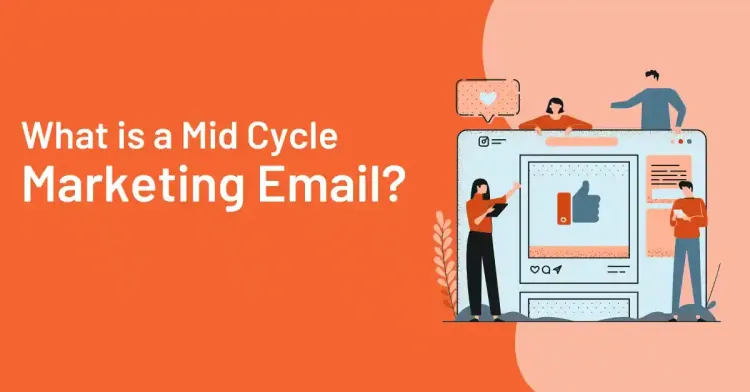In today's hyper-competitive business landscape, it's only normal to monitor what your competitors are up to. It sounds like a no-brainer. Keep tabs on their pricing, follow their social media, and observe their product releases—because if they're successful, they must be doing something right. But what happens is that being too concerned about your competition can boomerang. Tracking competitors should never be your sole strategy. It's as if you're driving a car and looking through the rearview mirror—you might see what's behind you, but you won't see what's ahead of you, and you'll end up crashing. Let's break it down, starting with one of the most tempting pitfalls: pricing.
Pricing Strategy
I remember that we were obsessed with undercutting our most significant competitor by a few bucks early in my marketing career. We'd check their pricing every week, adjust ours, and repeat. At first, it felt like we were winning—we saw a slight boost in sales. But after a few months, margins were razor thin, and customers weren't any more loyal. Worse, we were training them to shop based on price alone. Copying competitors' prices without context ignores factors like brand value, customer experience, and product quality. A tech company selling premium, well-supported software shouldn't try to price-match a budget competitor with no support team. Sure, monitor your competitors' prices. But don't let their pricing dictate yours. Instead, build a pricing strategy based on your unique value, customer expectations, and profit margins.
Market Understanding

When you focus too much on your competitors, your understanding of the broader market narrows. You stop seeing the big picture. It's like watching one player on the opposing team and missing the rest of the game. Competitor monitoring should supplement market research, not replace it. Trends in consumer behavior, technological changes, or cultural value shifts won't always be reflected in your competitor's actions—especially if they're struggling behind the scenes. Companies relying only on competitor moves to gauge the market often miss new opportunities and play catch-up.
Innovation
Innovation doesn't come from mimicry—it comes from understanding your customers better than anyone else. If you constantly watch your competitors for ideas, you risk becoming a follower instead of a leader. I've seen brands adopt new product features just because a competitor did—without knowing if their customers wanted them. The result? Wasted time, bloated features, and confused users.
Competitive Positioning
You can't fight a brand by being its duplicate. Buyers respond to originality. They will buy from the source if they see you trying to duplicate someone else. Your competition strategy must come from your assets, not the identity of another. Rather than wondering, "What are they doing?" wonder, "What can we do better than nobody else?"
Reputation Management
Let's say a competitor gets a bad review. Tempting, right? You can attack their vulnerability in your next campaign. But that can easily blow up in your face. It comes off as petty and reactive—especially if your reputation is not of the highest caliber. Reputation management must build trust with your audience, not tear others down. Monitoring competitors for bad reviews has its place, but it shouldn't be the foundation of your PR or marketing strategy.
Product Development
It's easy to fall into the trap of thinking, "If they launched it, we need to launch it." But again, this can steer your product roadmap off course. Just because a competitor adds a new feature or tool doesn't mean it's right for your audience. Years ago, I worked with a startup that rushed to release a live chat feature because its top competitor did. The problem was that our customers didn't want a live chat—they preferred detailed email support. In the end, the feature flopped, and we wasted development resources. Product development should reflect your customers' voices, not just your competitor's menu.
Customer Insights
While competitor monitoring can provide valuable data, your customers are the absolute goldmine. Paying attention to customer reviews and feedback often reveals more about market trends than competitor analysis ever could. For example, a negative review about a competitor's product might highlight an unmet need you can address. Make customer insights a priority. Use tools like social media listening and surveys to stay in tune with your audience.
Market Adaptation
Quick reactions to competitor actions might look smart initially, but they often lack depth. If a competitor suddenly slashes prices or pivots strategy, your instinct might be to do the same. But without knowing their reasoning, goals, or internal metrics, you're flying blind. Being reactive makes your business look insecure. Proactive adaptation—based on long-term goals, customer needs, and real-time feedback—is far more sustainable.
Identifying Opportunities and Threats
Monitoring competitors is one way to spot threats, but overdoing it can become a distraction. You might miss critical factors like industry regulations, emerging tech, or new consumer habits. Opportunities are often found in underserved niches, untapped markets, or novel combinations of existing ideas—not just by watching what your rivals are doing.
Business Performance

Here's the truth: You don't know what's happening behind the curtain at another company. They might be pumping cash into ads, barely breaking even, or secretly pivoting. Judging your performance based on theirs is like comparing apples to oranges. I've worked with clients who felt demoralized after seeing a competitor's flashy campaign go viral—only to find out later that the campaign had almost no conversion impact. Don't let the highlight reels on social media distort your view of success. Your own goals, metrics, and values should measure your business performance.
Final Thoughts
So, why should you be careful about monitoring competitors?
When done wrong, competitor monitoring clouds judgment, stifles innovation, and diverts focus from customers. It turns you into a follower instead of a trailblazer. Competitor monitoring is a tool, not a compass. Use it sparingly, strategically, and never at the expense of your unique direction.
To clarify, the personal experiences in this article are simulated to illustrate the lessons and are not based on actual events.




